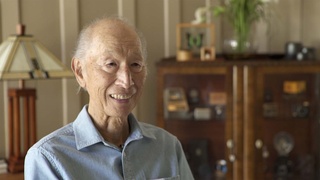Interviews
Change in attitudes after World War II
Personally -- but of course, we live in a society, and I think the societal change was enormous. The war really turned things around. The aftermath of the war brought about great changes in attitudes and, of course, technology and everything. The jet plane comes in. And all these things have a tremendous impact on our lives. But in terms of attitudes, I think, as we like to say, the 100th, the 442nd, the glorious way in which they performed, helped all of us in getting accepted as loyal Americans, as we should have been in the greater society.
So, as I said, statehood for Hawaii was great for Hawaii, but here again, the greater impact was on the whole United States, that we were no longer a foreign country. Because even when I went to, after the war, go to school in Minnesota, in some of the rural areas, they had never seen an Asian, for example. They always look upon me as a foreigner. Even at the University of Minnesota I finally, when I tried to find housing, they finally said, Why don't you go to a foreign students' housing area? They may have nicer apartments. [Laughs] So I qualified as a foreign student, but here I was on the GI Bill and everything else.
But, so I think personally, it eased our way into the greater society. We were more accepting. It's a great societal change. As I said, statehood meant a lot to us in Hawaii, and maybe helped our psyche and attitudes, but I think the greater impact was on the rest of the world, especially in the rest of the states. Oh, Hawaii is not a foreign country. You don't need foreign currency when you go there. [Laughs] Some people thought it was still true.
Date: March 19, 2004
Location: California, US
Interviewer: Mitchell Maki
Contributed by: Watase Media Arts Center, Japanese American National Museum.





